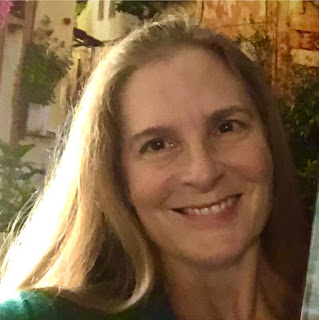 |
| Dind it on Amazon HERE |
This is not a religious book. These stories came before religion. These are the stories the patriarchy deleted, the truth of Yeshua's life that have never been told, until Now.
Yeshua could not have become the Divine Masculine Christ without his Divine Feminine counterpart. This book is for those who thirst for more about the true teachings, healings, miracles, travels to Tibet, India, Glastonbury, Egypt, Turkey, France, and marriage to his Beloved Mary Magdalene.
Many Christians believe all they have to do is believe in Yeshua without doing anything else-no kindness to others or to animals, no helping the poor, no generosity to the sick. Yeshua emphasized serving others and doing inner work by living his teachings through the loving vibration of his words.
Many have given up on Yeshua and turned to new gods-money, technology, science, and control. They don't realize they have insulted not only themselves, but God. They willingly submit to mass hypnosis which keeps them under the spell of evil leaders who claim their souls and keep them subservient to satanic forces.
In past life regressions many years ago, the Author saw herself as an apostle who was close to Yeshua. She never told anyone about this life or other lifetimes, but they opened up new vistas in her current life that brought realization of new talents that could be reawakened.
And so began memories of her life as the Apostle John, not the Baptist, rather the one known as John the Beloved. Yeshua said many of her memories would be in the book as personal experiences and eye-witness accounts to healings, miracles, travels, and quiet moments of contemplation with the followers.
Yeshua Today: The Romans didn't want people to worship a God, Goddess, or anyone else except them. So it was then, and so it is now. They were the reptilians, the dracos, and the cabal. They later became the Nazis, the Bolsheviks, the communists, and the socialists in your countries. They are the same as they were when I walked with you in those days.
It has taken two thousand years for people to wake up to the slavery they live under. You incarnated now to clear the earth of these evil ones and deliver Gaia to her peaceful, loving Beauty she deserves.
A Message from Mary Magdalene: I have had so many lifetimes, always returning in forms to serve the Mother and to be a physical embodiment of love, of beauty, so being the Oracle at Delphi was my role appropriate to that time, when the seeker, shall we say, of which you were one, believed that they had to find one who had the wisdom, insight, the vision to guide them but the important part of this is the advancement of what we would call human and spiritual evolution that they have moved so far beyond this.
My Beloved Sisters and Brothers: None of you have come to the planet at this time to be hidden away, whether it is a temple, a cave or social isolation. You have not come to live that way. So what I say to you which is what I have said always - STEP FORWARD AND DECLARE YOUR FREEDOM and it is too DARN BAD if those who are nervous or insular do not like what you have to say.
IT IS TIME TO BE HEARD! It is time for your voice to ring out! It is the vibration that courses through the words. The vibration of love and yes the vibration of truth as well.
And there are many upon the planet even now who are experiencing the fulfillment of what they have been told long ago in Delphi.
This is the generation that is seeing Revelation come to fruition. Yeshua calls to You who feel lost, controlled, or beaten down by life. He tells You to not lose Hope. His Love is around You, sustained by the Holy Breath of God.
Jeri Castronova, PhD, Spiritual Psychologist, Award-Winning Author, Artist, Poet, World Traveler, Energy Healer and Mystic Channel for the Masters. Past Board Member of AZ Authors. Past President of Prescott Writers. Conference Presentations and Workshops: Sacred Egypt with Goddess Isis, Discovering Our Past Lives, Seducing the Muse, Freeing the Inner Goddess. As a Clinical Psychologist, she worked in psychiatric hospitals with the severely mentally ill designing treatment plans based on psychological testing, individual and group therapy, art and poetry therapy, and trained psychology interns. After several life-transforming experiences in Egypt, Israel, Italy, Britain, and Greece, her focus changed dramatically and she began working with the Divine Masters. With 30 years experience in the mystical healing arts, she is dedicated to opening the portals to inner sacred truth to enhance creativity, lift the veils on our talents and skills, and shine Yeshua’s and Mary Magdalene’s brilliance into our lives. Find out more about Jeri on her website: https://jericastranova.com






